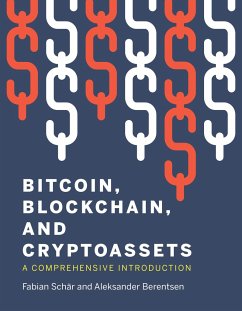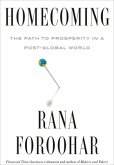An introduction to cryptocurrencies and blockchain technology; a guide for practitioners and students.
Bitcoin and blockchain enable the ownership of virtual property without the need for a central authority. Additionally, Bitcoin and other cryptocurrencies make up an entirely new class of assets that have the potential for fundamental change in the current financial system. This book offers an introduction to cryptocurrencies and blockchain technology that begins from the perspective of monetary economics.
The book first presents a nontechnical discussion of monetary theory, enabling readers to understand how cryptocurrencies are a radical departure from existing monetary instruments, and provides an overview of blockchain technology and the Bitcoin system. It then takes up technical aspects of Bitcoin in more detail, covering such topics as the Bitcoin network, its communications protocol, the mathematics underpinning decentralized validation, transaction types, the data structure of blocks, the proof-of-work consensus mechanism, and game theory. Finally, the book discusses specific issues and applications, including price volatility, regulatory uncertainty, and central bank cryptocurrencies, as well as such alternative applications as decentralized verification and attestation, tokens, and smart contracts. The concluding chapter offers practical advice on getting started with Bitcoin. End-of-chapter exercises allow readers to test their knowledge. Bitcoin, Blockchain, and Cryptoassets is suitable for classroom use and as a reference for practitioners.
Bitcoin and blockchain enable the ownership of virtual property without the need for a central authority. Additionally, Bitcoin and other cryptocurrencies make up an entirely new class of assets that have the potential for fundamental change in the current financial system. This book offers an introduction to cryptocurrencies and blockchain technology that begins from the perspective of monetary economics.
The book first presents a nontechnical discussion of monetary theory, enabling readers to understand how cryptocurrencies are a radical departure from existing monetary instruments, and provides an overview of blockchain technology and the Bitcoin system. It then takes up technical aspects of Bitcoin in more detail, covering such topics as the Bitcoin network, its communications protocol, the mathematics underpinning decentralized validation, transaction types, the data structure of blocks, the proof-of-work consensus mechanism, and game theory. Finally, the book discusses specific issues and applications, including price volatility, regulatory uncertainty, and central bank cryptocurrencies, as well as such alternative applications as decentralized verification and attestation, tokens, and smart contracts. The concluding chapter offers practical advice on getting started with Bitcoin. End-of-chapter exercises allow readers to test their knowledge. Bitcoin, Blockchain, and Cryptoassets is suitable for classroom use and as a reference for practitioners.
"This terrific book lucidly explains the key components of Bitcoin and blockchain, including hashing, public key cryptography, and smart contracts, embedded in an excellent presentation of key concepts from monetary economics and discussion of recent challenges for cryptocurrencies and central bank digital currencies. If you are looking for one book on this topic, this is it."
Harald Uhlig, Bruce Allen and Barbara Ritzenthaler Professor in Economics and the College, University of Chicago
"Bitcoin made a big splash in the financial world. This accessible book is an excellent introduction to both monetary theory and crypto technology."
Markus K. Brunnermeier, Edwards S. Sanford Professor of Economics, Princeton University
Harald Uhlig, Bruce Allen and Barbara Ritzenthaler Professor in Economics and the College, University of Chicago
"Bitcoin made a big splash in the financial world. This accessible book is an excellent introduction to both monetary theory and crypto technology."
Markus K. Brunnermeier, Edwards S. Sanford Professor of Economics, Princeton University








